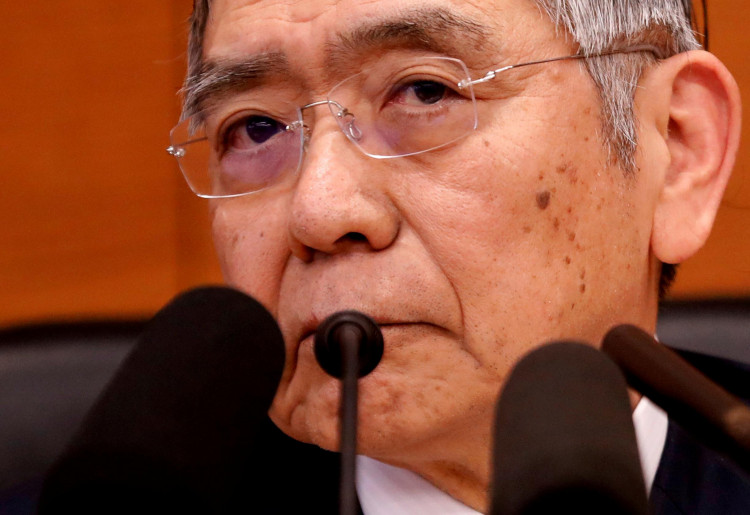Japan's federal reserve initiated an emergency action plan Monday to help lift the economy after the US central bank decided to slash its standard interest rate to almost zero.
The BOJ agreed to raise the yearly purchasing target for equities by 2 trillion yen and implement new corporate loan programs.
The meeting of the BOJ follows the US Fed's decision to trim down its target goal for federal funds rate by 1.00 percentage point to 0.00 percent to 0.25 percent, the lowest since 2015.
The Federal Reserve also gave the green light to establish a new loan scheme to expand one-year, zero-rate loans to the nation's lenders in an attempt to improve lending to companies.
That kept the bank's share prices fairly stable early Monday in Tokyo trading while stocks elsewere felt the pinch and took a dive. Yet, after the BOJ announced its decision Monday, shares in Japan also dropped. The Nikkei 225 index dropped by 1.3 percent by mid-afternoon.
Bank of Japan Gov. Haruhiko Kuroda called the meeting for Monday instead of as originally scheduled Wednesday and Thursday after the Fed's change Sunday.
Six central banks, including the BOJ, the US Federal Reserve and the European Central Bank, have said they would take concerted steps to boost the supply of liquidity to the US dollar.
The Japanese central bank would also allocate 1 trillion yen for further acquisitions of bonds in an attempt to keep credit markets from depleting.
The central bank kept its short-term interest rate target of (minus) 0.1 percent unchanged, and a pledge to direct long-term rates of about 0 percent.
The BOJ is thought to have little space to maneuver, as part of a huge, prolonged effort to use cheap credit to keep the economy expanding, having lowered its main policy rate to minus 0.1 percent many years ago.
The institutional lender has also been buying billions of dollars in Japanese government assets and other securities to help add more liquidity to the financial markets.
In a rare emergency statement earlier this month, BOJ Gov. Haruhiko Kuroda said that the central bank would make every effort to provide sufficient liquidity and to ensure stability in financial markets. Nonetheless, recent weak domestic economic data have increased pressure on the central bank to take further action.
Japanese Prime Minister Shinzo Abe said that the government would work closely with the BOJ to take "bold, unprecedented" steps to boost the lending capacities of the third largest economy in the world.





